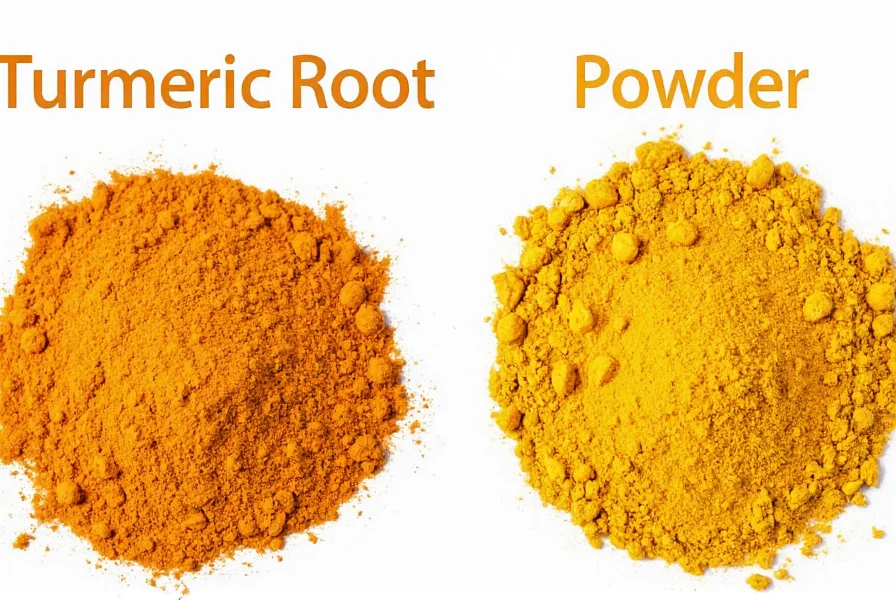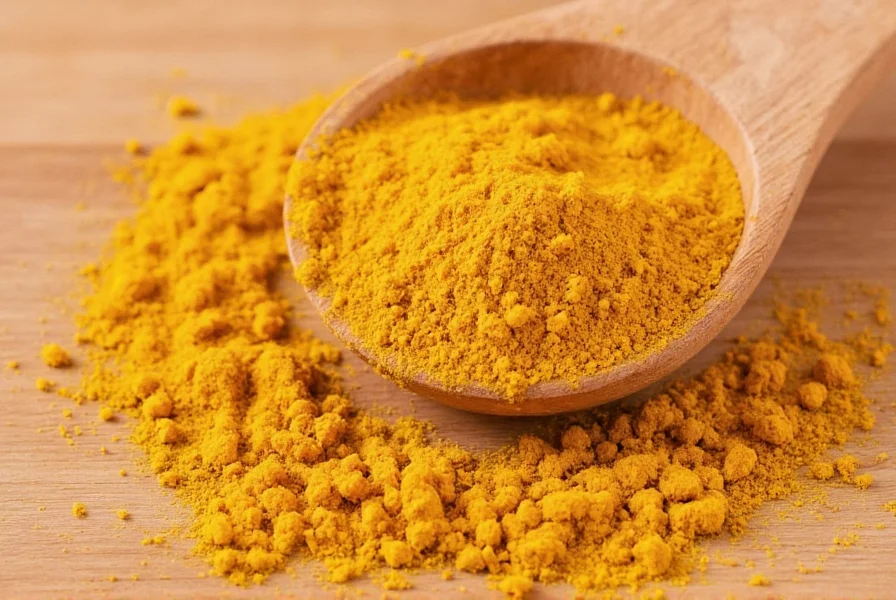Curcuma longa, commonly known as turmeric, has gained global recognition for its vibrant color and potential health benefits. This golden spice contains curcumin, a bioactive compound with anti-inflammatory and antioxidant properties that has been studied extensively. While moderate consumption offers numerous health advantages, understanding the boundaries of safe intake is crucial for maintaining optimal health.
Understanding Turmeric's Active Components
Turmeric contains several curcuminoids, with curcumin being the most researched component. Curcumin makes up approximately 2-8% of most turmeric preparations. When evaluating turmeric safety, it's essential to distinguish between:
- Dietary turmeric (the whole spice used in cooking)
- Curcumin supplements (concentrated extracts)
- Standardized turmeric extracts (varying curcumin percentages)
The concentration of curcumin significantly impacts potential side effects. Culinary use typically presents minimal risk, while high-dose supplements require more caution.

Recommended Daily Intake Guidelines
Health authorities have established acceptable daily intake levels based on scientific research:
| Source | Recommended Daily Limit | Notes |
|---|---|---|
| World Health Organization | 0-3 mg/kg body weight of curcumin | Equivalent to 1.8-5.4g turmeric for 60kg person |
| American Herbal Products Association | Up to 3g turmeric daily | For healthy adults |
| European Food Safety Authority | 225mg curcumin daily | From supplements |
These guidelines represent general recommendations. Individual factors including age, health status, and medication use significantly influence safe consumption levels.
Potential Side Effects of Excessive Turmeric Consumption
Consuming turmeric beyond recommended amounts may cause various adverse effects, particularly when using concentrated supplements rather than culinary amounts.
Digestive System Complications
High doses of turmeric commonly cause gastrointestinal distress:
- Nausea and dizziness (particularly at doses above 1,000 mg)
- Diarrhea or loose stools
- Acid reflux exacerbation
- Abdominal pain and cramping
A 2019 clinical review published in Food and Chemical Toxicology noted that doses exceeding 8 grams daily almost invariably cause significant digestive upset, though individual sensitivity varies considerably.
Blood Thinning Effects
Turmeric's antiplatelet properties become concerning at high doses:
- May increase bleeding risk, especially when combined with blood-thinning medications like warfarin
- Potential for prolonged bleeding time after injuries or surgery
- Increased bruising susceptibility
Individuals scheduled for surgery should discontinue high-dose turmeric supplements at least two weeks beforehand to minimize bleeding complications.
Gallbladder Concerns
Turmeric stimulates bile production, which can problematic for certain individuals:
- Potential worsening of gallstone symptoms
- Contraindicated for people with bile duct obstruction
- May trigger gallbladder contraction pain
Medication Interactions
Turmeric may interact with several common medications:
- Diabetes medications: May enhance blood sugar-lowering effects, potentially causing hypoglycemia
- Antacids: Turmeric may reduce effectiveness of proton pump inhibitors
- Chemotherapy drugs: Potential interference with certain treatments
- Iron supplements: High doses may inhibit iron absorption
Who Should Exercise Extra Caution
Certain populations require special consideration when consuming turmeric:
- Pregnant and breastfeeding women: Culinary amounts generally safe, but supplements should be avoided without medical supervision
- Individuals with bleeding disorders: Increased risk of bruising and bleeding
- People with gallbladder disease: May exacerbate symptoms
- Those with iron deficiency: High doses may further reduce iron absorption
- Pre-surgical patients: Should discontinue high-dose supplements
Safe Consumption Practices
To maximize benefits while minimizing risks:
- Start with small amounts (1/4-1/2 teaspoon daily) when introducing turmeric
- Pair with black pepper (containing piperine) to enhance absorption at lower doses
- Consume with healthy fats to improve curcumin bioavailability
- Monitor your body's response before increasing dosage
- Choose standardized extracts with clear curcumin percentages
- Consult healthcare providers before using therapeutic doses
For most healthy adults, incorporating 1-3 grams of turmeric powder (approximately 1/2-1.5 teaspoons) into daily cooking presents minimal risk while offering potential health benefits.
When to Consult a Healthcare Professional
Seek medical advice if you experience:
- Persistent digestive discomfort after turmeric consumption
- Unexplained bruising or bleeding
- Worsening of pre-existing gallbladder symptoms
- Concerns about medication interactions
- Planning to use high-dose turmeric for therapeutic purposes
Healthcare providers can help determine appropriate turmeric intake based on your individual health profile, current medications, and specific health goals.
Conclusion
Turmeric offers impressive health benefits when consumed responsibly. While culinary use rarely causes issues, high-dose supplementation requires careful consideration of individual health factors. The question is too much turmeric bad for you has a clear answer: yes, beyond certain thresholds, turmeric can cause adverse effects. By understanding recommended limits, potential side effects, and personal risk factors, you can safely incorporate this golden spice into your wellness routine. Always prioritize quality sources and consult healthcare professionals when using turmeric therapeutically.
Frequently Asked Questions
How much turmeric is safe to consume daily?
For most healthy adults, 500mg to 2,000mg of curcumin (turmeric's active compound) daily is considered safe. This typically translates to 1-3 grams of turmeric powder (about 1/2-1.5 teaspoons). The World Health Organization recommends 0-3 mg of curcumin per kilogram of body weight. Always start with lower doses and monitor your body's response.
What are the signs of consuming too much turmeric?
Signs of excessive turmeric consumption include digestive issues like nausea, diarrhea, and acid reflux; increased bleeding or bruising; worsening gallbladder pain; and potential interactions with medications. High doses (above 8 grams) almost always cause significant gastrointestinal distress. If you experience persistent symptoms after turmeric consumption, reduce your intake or consult a healthcare provider.
Can turmeric interact with blood pressure medication?
Yes, turmeric may interact with blood pressure medications. Turmeric has mild blood pressure-lowering effects, which could potentially enhance the effects of antihypertensive medications, leading to excessively low blood pressure. If you take blood pressure medication and want to use turmeric supplements, consult your healthcare provider first and monitor your blood pressure regularly.
Is it dangerous to take turmeric before surgery?
Yes, taking turmeric supplements before surgery can be dangerous due to its blood-thinning properties. Turmeric may increase bleeding risk during and after surgical procedures. Medical professionals typically recommend discontinuing high-dose turmeric supplements at least two weeks before scheduled surgery. Always inform your surgeon about all supplements you're taking.
Can turmeric cause liver damage?
While turmeric is generally considered liver-protective at normal doses, extremely high doses or prolonged use of concentrated supplements may potentially cause liver issues in susceptible individuals. Cases of turmeric-related liver injury are rare but have been reported, typically with very high-dose supplementation (above 1,500 mg of curcumin twice daily for extended periods). People with pre-existing liver conditions should consult a healthcare provider before using turmeric supplements.











 浙公网安备
33010002000092号
浙公网安备
33010002000092号 浙B2-20120091-4
浙B2-20120091-4